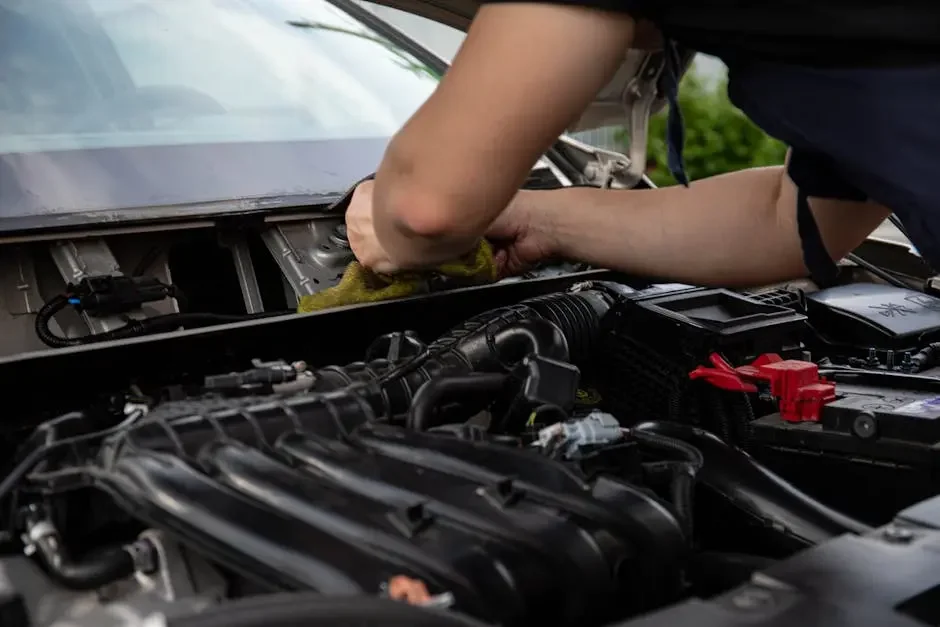What Is Engine Detailing and Why Is It Important for My Car?
Engine detailing may sound like a task best left to the professionals, but it’s easier—and more important—than you think. This process goes beyond just cleaning your car; it plays a crucial role in preserving your vehicle's value and performance. In this post, we’ll break down what engine detailing is, why it matters, and how you can tackle it yourself or choose a professional service.
Understanding Engine Detailing
Engine detailing involves thoroughly cleaning, inspecting, and sometimes repainting your car's engine compartment. This not only removes grime and dirt but also allows for a better visual inspection of engine components.
At its core, engine detailing is about giving your engine the care it deserves. After all, a clean engine runs more smoothly.
As you dive into the world of engine detailing, it’s important to recognize that this practice doesn’t just restore aesthetics; it enhances your engine’s overall health. The process can uncover hidden issues that might otherwise go unnoticed.
So what exactly does an engine detail involve? It often encompasses degreasing components, cleaning surfaces with mild detergents, and ensuring that everything is well-protected. Remember, clean surfaces can catch potential issues before they escalate!
The Benefits of Engine Detailing
Keeping your engine clean helps in identifying leaks or problems early. It also improves the engine's efficiency and can even enhance the resale value of your vehicle.
One of the biggest perks of engine detailing is its role in performance enhancement. When components are clean, it allows for better airflow and operation, which can lead to improved fuel efficiency.
Additionally, engine detailing can serve as a preventative measure. Small leaks and other issues can often be spotted more easily on a clean surface. This early detection can save you significant repair costs down the line.
Moreover, a clean engine looks appealing to potential buyers. It suggests that the car has been well cared for, potentially increasing its market value. It’s a win-win!
How to Detail Your Engine
Start by gathering the appropriate tools and materials. Make sure to disconnect the battery, cover sensitive components, and use a degreaser for cleaner results. Rinse gently and let everything dry before reassembling.
To get the best results from your engine detailing, preparation is key. Before you even begin, ensure you have protective gear, a gentle degreaser, and microfiber cloths at the ready.
Remember, patience is vital here! After applying the degreaser, give it time to work its magic. Allowing it to sit can make the cleaning process significantly easier.
After rinsing, the detailing doesn’t stop. Consider using a protective spray to shield your clean surfaces from future grime. This can help maintain that freshly-detailed look.
When to Seek Professional Help
If you’re unfamiliar with engine components or lack the necessary equipment, it may be best to leave detailing to the professionals. Look for services that specialize in engine cleaning.
Understanding when to call in the pros can save you time and potential headaches. If the thought of working on your engine makes you uneasy, it’s perfectly acceptable to seek professional assistance.
Indeed, some detailing tasks require advanced knowledge and tools. Professionals are well-equipped not only to clean but also to identify and fix underlying issues in your engine.
Moreover, utilizing a professional service can ensure that the job is done safely and effectively, giving you peace of mind. You can then focus on enjoying a well-maintained vehicle without the fuss!
The Importance of Engine Detailing
In conclusion, engine detailing is not just an aesthetic endeavor; it's critical for maintaining your vehicle's longevity and performance. Whether you decide to do it yourself or hire a professional, keeping your engine in tip-top shape will benefit you in the long run.

